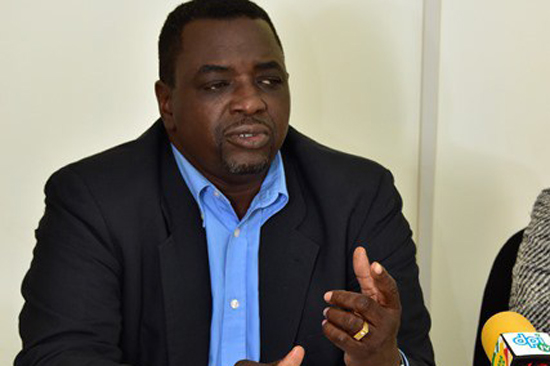The response by the country’s commercial banks to what was expected to be their robust collaboration with the Small Business Bureau (SBB) to enable greater access to lending for local small business development has failed to materialize, thereby limiting the effectiveness of the Bureau in pursuit of the fulfillment of its mandate, the agency’s Chief Executive Officer, Dr. Lowell Porter has told Stabroek Business.
Speaking with Stabroek Business during an extended interview last week, Porter said that it was also a matter of considerable disappointment that only one of the country’s indigenous banks has signed on to work with the Bureau to enhance access to funding for investment in small businesses. Porter also told Stabroek Business that he believed that government itself should further commit to ensuring the adequate financing of the Bureau’s projects.
The SBB was established under the Guyana’s Small Business Act (2004) to implement programmes and offer services to address constraints faced by small businesses including access to finance, the acquisition of business management and technical skills, the promotion of policies that foster small business development and the monitoring of small businesses’ access to the designated 20% of Government’s procurement of goods and services.
Part of the function of the Bureau is to provide collateral support to enable applicants to access loans from commercial banks ranging from $100,000 to $30 million at interest rates of 6 per cent. The Guyana Bank for Trade and Industry (GBTI) is the only indigenous commercial bank the offers loans for small business projects under the SBB’s collateral support programme. The other locally-based commercial bank that has bought in to the project is the Trinidad and Tobago-owned Republic Bank operations in Guyana. Since the commencement of the SBB’s operations in 2013 only 55 applicants have benefitted from commercial bank loans under the scheme. Up to April this year the SBB has disbursed 533 grants at $300,000 each.
Porter told Stabroek Business that the chances of success for the Bureau’s small business support programme were likely to increase significantly with greater support from the banking sector. “It is disappointing that up until now just a single local commercial bank is on board,” he added.
And while Porter says he remains optimistic that the Bureau can still make a meaningful impact on local small business development he repeated his earlier stated position regarding what he says are ‘flaws” in the existing model that
continue to militate against the optimizing of its success. Specifically, he pointed to the constraint of a ceiling of a mere $300,000 grant funding for individual small businesses which he says is “inadequate” for any meaningful investment as well as what he sees as the exalted expectation embedded in the project’s original objectives regarding the creation of 2,200 new jobs over two years, ending in March 2016.
According to Porter while the Bureau’s oversight findings suggest that around 60% of the projects that have benefitted from grant funding have shown clear evidence of going forward, most of these are micro projects with only limited capacity for job creation.
And while Porter says he is optimistic that the Bureau will remain relevant to the growth of small businesses in Guyana he conceded that its future depended on “funding considerations” that were yet to be addressed to finality.
The US$5 million first phase of the project having already ended, it has so far benefitted from two extensions that would have taken it up to December 31 last year. However, Porter explained that the Inter-American Development Bank (IDB) which is overseeing the execution of the project had approved the further extension of the Project up to August this year and a further two months to “wrap up” the current phase. Discussions are ensuing with Norway on the matter of the continuity of a relationship that will allow for further funding for the continuity of the project.
Asked to comment, meanwhile, on concerns expressed over the allocation of training contracts prior to his own appointment, Porter said that the Bureau’s training regime had proven to be too costly and that it had been considered necessary to change the system. While he insisted that beneficiaries of grants would have to continue to receive training he told this newspaper that close attention would have to be paid to ensure value for money in the allocation of training contracts.
And according to Porter, the Bureau will be seeking to maintain its relevance through a Secretariat that will remain in place though the tenure of its project staff could end in August this year. He said that the Bureau will still have responsibility for monitoring existing projects through site visits and training exercises. Efforts to consolidate its presence as part of the country’s small business development landscape will include its further administrative expansion into the far-flung regions of the country by working with regions and municipalities to establish ‘desks’ that would support the Bureau’s oversight and training initiatives. Porter said that the Bureau was already receiving support from some agencies in far-flung areas of the country.
Meanwhile, the Bureau has already signaled its intention to move beyond the scope of its current range of projects by submitting a proposal for funding under the Compete Caribbean project, a regional private sector development programme funded by the Inter-American Development Bank, the United Kingdom Department for International Development (DfID) and the Caribbean Development Bank (CDB) that works with private, public and not-for-profit organizations to help fashion initiatives that stimulate economic growth, increase productivity and foster innovation and competitiveness in thirteen Caribbean countries including Guyana.










